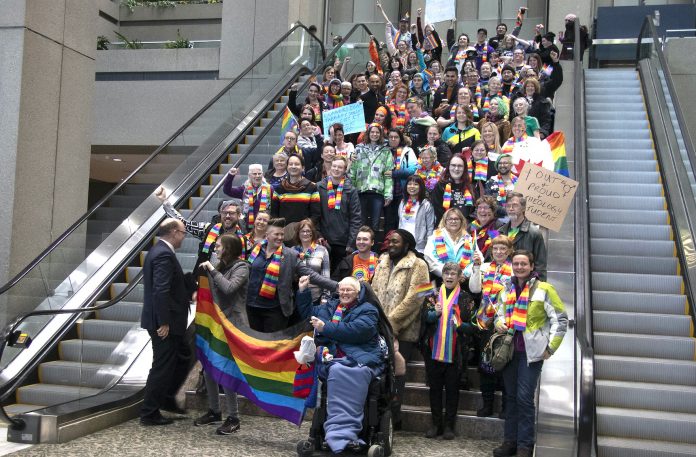Progress for LGBT rights continued at the end of May 2020, when the city of Calgary held a vote on conversion therapy. This practice, which uses intense social and psychological pressure to “convert” a gay person to a traditional heterosexual lifestyle, has drawn protests and demonstrations to highlight the potential harm it does. In late May, the Calgary city council voted for a bylaw banning the practice. Individuals or groups that practice conversion therapy now face fines of up to $10,000 in punishment.
What is Conversion Therapy?
Conversion therapy hearkens back to an outdated view that homosexuality is a mental disorder. Using that faulty assumption, some individuals believed that the “problem” could be “cured” using traditional therapies such as interventions and psychoanalysis. Others went further, embracing harmful methods of conversion therapy that included such extremely dangerous methods as lobotomy. More and more locations around the world have banned conversion therapy due to the dangers it poses to healthy individuals. The World Health Organization states that the reparative therapy is harmful and can often cause severe long-term psychological damage.
It is important to remember that conversion therapy is not based on actual science. The entire practice comes from the faulty assumption that homosexuality is a mental disorder that needs to be cured. The social stigma against homosexuality often causes a great deal of stress and worry, especially to younger people still coming to grips with their sexual identity. Those who face pressure from family member or friends who encourage them to suppress or change their sense of sexual identity should seek the help of a registered psychotherapist in Calgary rather than relying on such dangerous methods as conversion therapy.
Where the Conversion Therapy is Also Banned?
Numerous medical and psychological institutions around the world have condemned conversion therapy as the dangerous practice that it is. Despite the evidence lined up against it, numerous groups still practice conversion therapy in different areas throughout the world. For example, while 20 states in the United States have banned the therapy, many others have shown no inclination to enact such legislation. There is hope, however, as several countries have shown enough awareness of the dangers to ban this practice outright. For example, Germany banned the conversion therapy this year, becoming the fifth nation in the world to do so. The trend overall has been to recognize this therapy as the dangerous pseudoscience that it is, even if progress toward that goal sometimes seems slow.
The recognition that conversion therapy disproportionately harms young people serves as one of the biggest drivers of these bans. The therapy specifically targets adolescents and those who are just reaching sexual maturity. During this confusing time in a person’s life, being told that their sexual orientation is an abnormal disease can cause significant long-term damage. Even the name itself has caused problems over the years, with the term “therapy” carrying a scientific or medical connotation. The fact that the practice has no scientific basis or evidence for working often gets overlooked, as does the psychological damage done to millions of people who suffer through the therapy.
Just recognizing conversion therapy as harmful is not usually enough; the act of banning it outright has proven to be much more effective. For example, Albania has become the third country which banned the reparative therapy. By doing so, the country also prevent licensed psychotherapists from recommending or performing the practice. Doing so results in severe fines and the loss of their ability to practice professionally in the country. Potentially severe consequences keep people from pushing the limit and practicing conversion therapy despite its dangers. A boad country-wide ban goes one step further and prevents those who do engage in the practice from simply moving to another nearby region.
The more locations that ban conversion therapy, the more avenues the LGBT community has to get healthy support and acceptance for what should be considered a normal and healthy lifestyle. By passing a ban on the therapy, Calgary provides its citizens with protection and gives young people more options among established and ethical therapists to get the help they need if they are struggling with their sexual identity. The act also opens the door for more progressive therapies based in science to take root. Rather than continue grappling with a discredited practice like conversion therapy, researchers and therapists can focus their studies on more productive and helpful ways in which to help a young person come to grips with their budding sexuality.



















